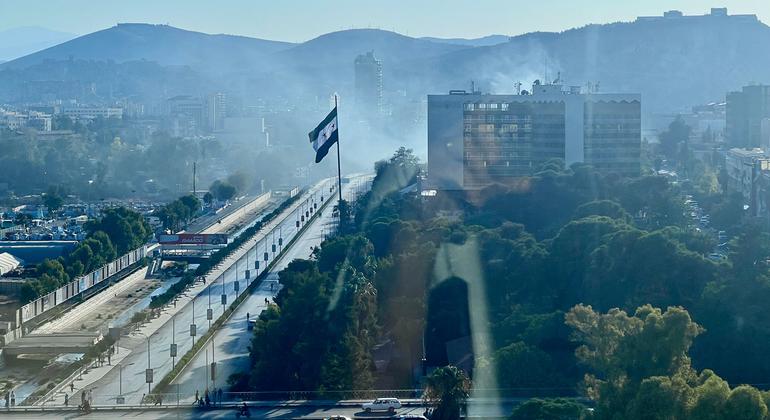In December 2024, the Bashar Al-Assad regime was toppled by a coalition of opposition groups, led by the Hay’at Tahrir al-Sham militia, leading to a widespread outpouring of relief that the civil war, lasting over decade, had come to an end – signalling the return of over a million Syrian refugees.
After being shut out of the country during the Assad years, the Independent International Commission of Inquiry on Syria – appointed by the UN Human Rights Council in 2011 to investigate and document human rights violations and abuses committed during the conflict – was granted full access to the country by the transitional government of President Ahmed al-Sharaa.
In August, the Commission released a report on the wave of violence that engulfed coastal and western central Syria from January 2025, which found that acts that may amount to war crimes, including murder and torture, were committed.
Massacres in Latakia and beyond
Chair of the UN Independent International Commission of Inquiry on Syria Paulo Pinheiro. UN Photo/Jean-Marc Ferré
An estimated 1,400 men, women and children were killed in massacres in Latakia, Tartus and Hama governorates, including by members of the government’s security forces.
Updating the Third Committee of the General Assembly – which focuses on human rights issues – on Thursday, Mr. Pinheiro said that investigators had conducted on-site visits to Latakia and Tartus in June of this year, and more recently to Suweyda and surrounding areas.
Mr. Pinheiro reported that his team continues to receive reports of extra-judicial killings, torture and ill-treatment and the forced displacement of Alawi civilians in Damascus and western governorates.
In Sweida, more than 30 villages in majority Druze areas have been entirely depopulated, looted, and burned, and Commission investigators met many families and witnesses who recounted the brutal killings of loved ones taken from their homes.

Sweida city, during armed conflict in July 2025
Stage set for further violence
There is growing mistrust, he said, between the Druze and Bedouin communities, and the interim government, which needs to hold the perpetrators of the killings accountable and ensure such acts are never repeated.
“The Commission is gravely concerned that the stage is set for further violence if swift action is not taken,” warned Mr. Pinheiro. “Rebuilding trust will require dedicated efforts for dialogue, inclusion, and justice for all victims.”
The UN-appointed independent rights expert raised growing concerns about violence and discrimination directed against women, citing multiple reports of women and girls being abducted by unknown armed actors, some of whom were reportedly subjected to sexual violence and forced marriage.
“In many cases, despite reporting their disappearance to the local authorities, families report that no action was taken yet to investigate or follow up.”
Mr. Pinheiro called on UN Member States to halt Israel’s advance into southern Syria which, he said, has seen civilians forcibly displaced and arbitrarily detained, and airstrikes which have reportedly caused civilian casualties: “third-state intervention risks further inflaming the conflict and inflicting even greater suffering on the Syrian people.”
Noting recent steps by several States and the EU to ease sanctions on Syria, Mr. Pinheiro said that such moves are welcome, and urged Member States to continue to support the 2025 humanitarian appeal for the country, which is currently only 19 per cent funded.



